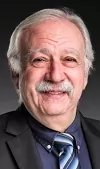- with Senior Company Executives, HR and Finance and Tax Executives
- with readers working within the Aerospace & Defence and Oil & Gas industries
Health practitioners need to be aware that their governing bodies such as the NSW Pharmacy Council, Dental Council (collectively referred to below as Health Council) and many others may at any time place restrictions on their registrations for 'the public interest'.
They also need to be aware that these conditions:
- are often imposed on their registration with little warning
- they can be very severe with serious effects on your employment or business
- they often have no logical connection to the complaint
- that challenging such restrictions can be confusing and costly
In this three-part article series, Bennett & Philip Lawyers will look at a couple of cases that involved health practitioners being restricted under section 150 of the Health Practitioner Regulation National Law ('National Law') and make suggestions of matters to consider if you face a similar situation.
WHAT IS SECTION 150?
Section 150 of the National Law (NSW) and the equivalent sections in other states¹ allows a Health Council² to suspend, or impose conditions, upon a registered health practitioner's registration if the Health Council is satisfied it would be appropriate to do so for the protection of health, or safety of people, or if it would otherwise be in the public interest.
An example in the Queensland version of the legislation provides:
- Example of when action may be taken in the public interest
- A registered health practitioner is charged with a serious criminal offence, unrelated to the practitioner's practice, for which immediate action is required to be taken to maintain public confidence in the provision of services by health practitioners
As can be seen from this example, the situations which a Health Council may claim that either conditions, or a suspension should be imposed for the public interest, are very broad and subjective and more importantly, only subject to the Health Council's opinion as opposed to any actual public input.
HANNA V NSW PHARMACY COUNCIL
We recently represented Mr Hanna in appealing the restrictions imposed on his registration by the NSW Pharmacy Council ('NSWPC'). He had been represented by another law firm at his Section 150 hearing. The context to understand is that this hearing was to consider a few relatively minor complaints regarding the following:
- Complaint about an oversupply of Codeine where the patient had the scripts from a doctor for a three-month supply
- Patient who had an unfortunate side effect to medication for a script that was provided electronically and delivered by post
- Complaint about an alleged side effect of a compounded sea sickness medication, in circumstances where there was no evidence that the complaint involved a genuine patient.
Mr Hanna was the owner of the pharmacies, but was not the prescribing pharmacist in either of these complaints. The NSWPC then had a two-day hearing that focused on a very large amount of irrelevant details that did not concern the complaint at all and then subsequently imposed conditions that (among others):
- Mr Hanna could not provide any scripts by mail order
- could not allow any compounding to occur in any pharmacies in which he had a financial interest (given this was a substantial amount of business for his pharmacies, this was a very significant imposition).
Subsequently when we were engaged by Mr Hanna, we made an urgent appeal of these conditions to NCAT and sought a stay of these conditions while the appeal was being heard. The NSWPC opposed the appeal and the stay maintaining that these conditions were required to protect the public.
The stay was ultimately granted on the condition that the sea sickness tablets would not be compounded with the member stating:
"I am unable, for the purpose of this stay application, to make a considered decision about the risks if any to the public as a result of all online dispensing of pharmaceuticals including compounded products. it is apparently from the websites referred to by the Council in their reasons that online dispensing is a mode of dispensing, which is facilitated by medical practitioners providing electronic prescriptions and has no doubt been utilised in a widespread manner during the COVID 19 pandemic."
One week prior to the hearing of Mr Hanna's appeal of the restrictions on the legal grounds of this, the NSWPC agreed to withdraw the restrictions in exchange for the Council to pay Mr Hanna's legal costs of $50,000. The NSWPC has since removed all restrictions on Mr Hanna's registration.
Footnotes
Individual liability limited by a scheme approved under professional standards legislation (personal injury work exempted).
1 Similar sections exist in each state's version of the National Law, in both Qld and WA s.156 which VIC has adopted.
2 Defined in s 41B of the National Law being a variety of medical councils
The content of this article is intended to provide a general guide to the subject matter. Specialist advice should be sought about your specific circumstances.



